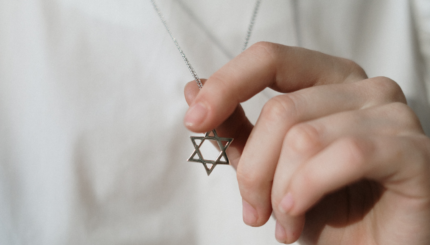For centuries Jewish identity was synonymous with the Jewish religion. This began to change starting in the mid-17th century as movements for political rights and equality moved across Europe. Jews had more opportunities to interact with other cultures and communities, and as a result, ideas about religion and identity changed. As Jonathan Sarna writes, what made modern democratic society unique is voluntaryism, “the principle that individuals are free to choose their religious beliefs and associations without political, ecclesiastical or communal coercion.”
Without the community telling Jews how to express their Judaism and with exposure to secular culture new forms of Jewish identity came about. These included a strictly cultural Jewish identity that removed religion from the equation and instead focused on the liberal and fine arts.
Today, many Jews around the world identify with Judaism solely through cultural means. Jewish educators and community leaders have found ways to communicate values, set agendas, and organize constituencies through cultural mechanisms, thus infusing the cultural Jewish community with a strong self-identity separate from the traditional Jewish theology.
Investing in Judaism’s rich cultural heritage doesn’t always mean a total divorce from religion. As the Western world becomes more and more focused on finding the perfect niche for every person, and personalizing everything from laptops to lattes, many Jews are customizing their investment in Judaism, coming up with communities and organizations for everything from Jewish vegans, to Jewish pacifists, to Jewish parents with autistic children.

Help us keep Jewish knowledge accessible to millions of people around the world.
Your donation to My Jewish Learning fuels endless journeys of Jewish discovery. With your help, My Jewish Learning can continue to provide nonstop opportunities for learning, connection and growth.

Even the appearance of Jews has changed, as multiracial families become a larger segment of the Jewish community, integrating Korean, Chinese, Ethiopian and many other backgrounds into the Jewish mix.
Life context has become a major factor in how people choose their communities and affiliations. Some single people may join communities in order to find partners. Young parents may decide they want to send their children to Jewish schools, and seniors may join synagogues or Jewish community centers in order to attend classes and activities with other retirees.
Israel and Zionism have added another spoke to the wheel of Jewish identity, with many Jews associating mainly or partially with Israel. Visiting Israel can elicit strong feelings of loyalty and obligation to the land of the Bible. Many Jews around the world see Israel as the ultimate guarantor of the Jewish people’s survival, and are driven by a deep commitment to the idea of Israel.


